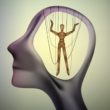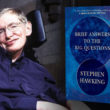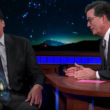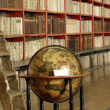Free Will Disproved by Science?
by Matt Nelson
Filed under Anthropology, Science

For those who reject the notion of free will, our experience of making our own decisions is nothing more than a deep-seated illusion. “The reality is,” insists biologist Anthony Cashmore, “not only do we have no more free will than a fly or a bacterium, in actuality we have no more free will than a bowl of sugar.” Those who argue for the nonexistence of free will often do so on scientific grounds. And those who offer a scientific “proof” against free will point... Read More
What Science REALLY Says About the Soul (& Life After Death)
by Joe Heschmeyer
Filed under Science

If you’re not following the debates on all things scientific and religious, it’s easy to come away with the vague sense that science has “proven” that (a) the ‘mind’ is really just the brain, or (b) that there’s no such thing as life after death, or (c) there’s no such thing as an immaterial soul. But what’s remarkable about each of those three things is how far the vague sense of what science probably says differs from what the actual science says. I was reminded... Read More
The Science of Miracles
by Joe Heschmeyer
Filed under Science, The Church

What happens when an atheist doctor and historian is given access to the Vatican’s Secret Archives to investigate miracle claims? Just such a thing happened in the early 2000s, and both the story behind it, and the doctor’s conclusions, are worth recounting. Dr. Jacalyn Duffin, a hematologist (M.D.) and historian (Ph.D.), was the Hannah Chair of the History of Medicine at Queen’s University from 1988 until 2017, and she’s served as both the President of the American Association... Read More
Stephen Hawking: Great Scientist, Lousy Theologian
by Bishop Robert Barron
Filed under Book Reviews, Christianity and Science

Stephen Hawking was a great theoretical physicist and cosmologist, perhaps the most important since Einstein. It is only right that his remains have been interred alongside those of Isaac Newton in Westminster Abbey. He was, furthermore, a person of tremendous courage and perseverance, accomplishing groundbreaking work despite a decades-long struggle with the debilitating effects of Lou Gehrig’s disease. And by all accounts, he was man of good humor with a rare gift for friendship. It... Read More
The Scientific Possibility of Adam and Eve
by Dr. Dennis Bonnette
Filed under Evolution

Until the advent of Darwinian evolution, most Christians believed that the entire human race actually descended from our literally-real first parents, Adam and Eve. Many still do. In 1950, Pope Pius XII issued an encyclical, Humani Generis, in which he wrote that “revealed truth and … the magisterium of the Church teach” that Original Sin is "a sin truly committed by one Adam [ab uno Adamo], and which is transmitted to all by generation, and exists in each one as his own."1... Read More
How Cosmic Existence Reveals God’s Reality
by Dr. Dennis Bonnette
Filed under Christianity and Science, The Existence of God

Gottfried Wilhelm Leibniz (1646-1716) famously posed the ultimate question: “Why is there something rather than nothing?” To this, theoretical physicist Sean Carroll replies: “The universe can simply exist, end of story.” Still, as I have shown elsewhere, everything must have a reason for its being or coming-to-be, including the cosmos. This metaphysical first principle is ably defended by others as well.1 One distinction must be added: either a thing is its own reason or... Read More
Neil deGrasse Tyson on Catholicism and Science
by Matthew Becklo
Filed under Christianity and Science

.embed-container { position: relative; padding-bottom: 56.25%; height: 0; overflow: hidden; max-width: 100%; } .embed-container iframe, .embed-container object, .embed-container embed { position: absolute; top: 0; left: 0; width: 100%; height: 100%; } On a recent episode of The Late Show, host Stephen Colbert and frequent visitor Neil deGrasse Tyson joked about the astronomical insignificance of New Year’s Day. Before long, Tyson was talking about the role the Catholic... Read More
Why Modern Physics Does Not Refute Thomistic Philosophy
by Dr. Dennis Bonnette
Filed under Philosophy, Science

Today some claim that modern physics evinces that Aristotelian-Thomist philosophy is an archaic myth that has outlived its credibility. They say things like, “If Thomist metaphysics contradicts modern physics, then Thomism is false.” They make claims against Thomism, citing modern physical theories like quantum mechanics and relativity. We are told counterintuitive things, such as that (1) whole universes can pop into existence from nothing according to quantum mechanics, (2) effects... Read More
The March for Scientism
by Carl Olson
Filed under Science

Back in the early 1840s, John Henry Newman observed that physical philosophers—that is, scientists—"are ever inquiring whence things are, not why; referring them to nature, not to mind; and thus they tend to make a system a substitute for a God..." The "tending" has been, as they say, trending ever since. About a hundred years later, in 1948, Fulton Sheen remarked in his outstanding study Philosophy of Religion, that: Science cannot give us a philosophy, nor can it give us an ethics;... Read More
5 Shocking Plot Twists in the Story of Science and Faith
by Brandon Vogt
Filed under Christianity and Science

In his excellent book, Modern Physics and Ancient Faith (University of Notre Dame Press, 2003), physics professor Stephen M. Barr recounts the typical story of the the universe as told by scientific materialists. It's one of the best summaries of the naturalist worldview I've read, from any perspective: "The world revealed by science bears little resemblance to the world as it was portrayed by religion. Judaism and Christianity taught that the world was created by God, and that things... Read More






